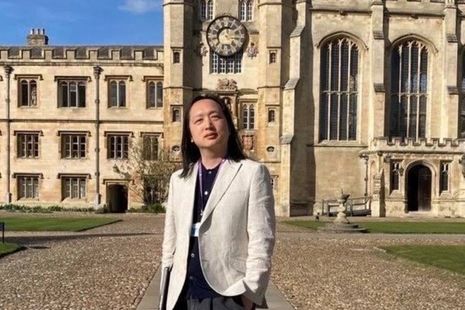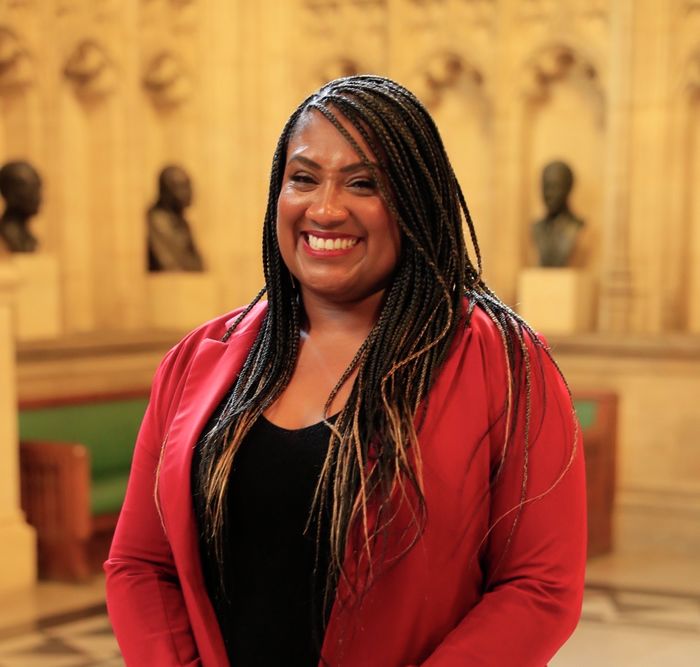Tech, the politics of Taiwan, and the future of democracy: meet Taiwan’s cyber ambassador, Audrey Tang
A conversation with tech activist turned pioneering politician, Audrey Tang

Audrey Tang is a woman of firsts. Before becoming Taiwan’s Cyber Ambassador-at-Large, she was the world’s first Minister for Digital Affairs. Her election to the Taiwanese Cabinet in 2016 also made her the first transgender Cabinet minister. With less than 24 hours to get to know her, our conversation easily becomes one of the most fascinating I’ve had in a while.
Prior entering politics, Tang was a well-known civic tech activist (often referred to as a “civic hacker”) despite leaving school at the age of 14 with no qualifications. After dropping out to pursue her digital ambitions, she built a software startup and, at the age of nineteen, worked as an advisor to Apple in Silicon Valley.
Her first political involvement came in 2014, when Tang helped protesters in the Sunflower Student movement to occupy the Taiwanese parliament building and broadcast their message. The Sunflower Movement saw a coalition of students and civic groups protest against a trade treaty between Taiwan and China, which many believed would grant China excessive economic and political influence over Taiwan. Tang and her team worked to develop a cybernetic system to supply broadband connectivity for live streaming into Taipei’s national legislature.
Two years later, Tang was appointed to a Cabinet position, initially as a minister without portfolio. She describes her move from technological activism to politics: “I always stress that I work with the government, not for the government,” viewing her role as breaching the perceived divide between government and the ground.
“In such a divisive political climate, it is essential to find something that bridges us together.”
Politically, she self- identifies as “a Taoist or conservative anarchist,” who wants to “develop interconnected networks” that can independently uncover shared understandings between people and their governments.
Tang tells me that seeing “both sides” in any public conflict is one of her central political principles. She has previously spoken about wanting to heal societal polarisation, and when I ask her for a solution, she replies that, “it’s all about bridging”.
‘Bridging’, for Tang, involves finding shared values amongst seemingly opposed political sides in order to overcome political disagreement. “Maybe the two sides don’t agree, but there’s this one overarching value that they nevertheless share,” she says, “and that is where I aim to build a ‘bridge’ that allows the issue to be resolved.”
“People are not really that polarised, it’s the algorithm.”
She continues: “In such a divisive political climate, it is essential to find something that bridges us together.” From this, one can progress a discussion in a healthy manner, “instead of getting gridlocked on […] the most polarised things.”
I ask her about the divisive topics of today’s digital age: misinformation, disinformation and polarisation. Interestingly, Tang argues that, “people are not really that polarised”. She blames social media algorithms which amplify extremist voices, creating an illusion of polarisation.
Encouragingly, she tells me that “bridging algorithms” – connective algorithms which link users with content to incite mutual discussions – are on the rise. She says: “Algorithms like X/Twitter’s Community notes promote mutual understanding and trust across different perspectives. This allows public opinion to constructively inform government strategies.” Another bridging algorithm which Tang collaborated on, Polis, was successfully used by the Taiwanese government in 2015 to understand public sentiment surrounding the introduction of Uber X.
I ask Tang about her future aspirations for sustaining democratic cooperation on a global level. She circles back to “digital bridging” – bringing together citizens and politicians through technology – as the best way to effectively achieve collaborative change in the 21st century. She envisions democracy as an evolving social technology, which extends beyond formal institutions to include grassroots, community-driven participation: “In the 21st century, I see this as the way forward for democracy to flourish.”
 News / Colleges charge different rents for the same Castle Street accommodation2 March 2026
News / Colleges charge different rents for the same Castle Street accommodation2 March 2026 News / King’s hosts open iftar for Ramadan3 March 2026
News / King’s hosts open iftar for Ramadan3 March 2026 Theatre / Lunatics and leisure centres 4 March 2026
Theatre / Lunatics and leisure centres 4 March 2026 News / Angela Merkel among Cambridge honorary degree nominees27 February 2026
News / Angela Merkel among Cambridge honorary degree nominees27 February 2026 News / News in Brief: waterworks, wine woes, and workplace wins 1 March 2026
News / News in Brief: waterworks, wine woes, and workplace wins 1 March 2026








